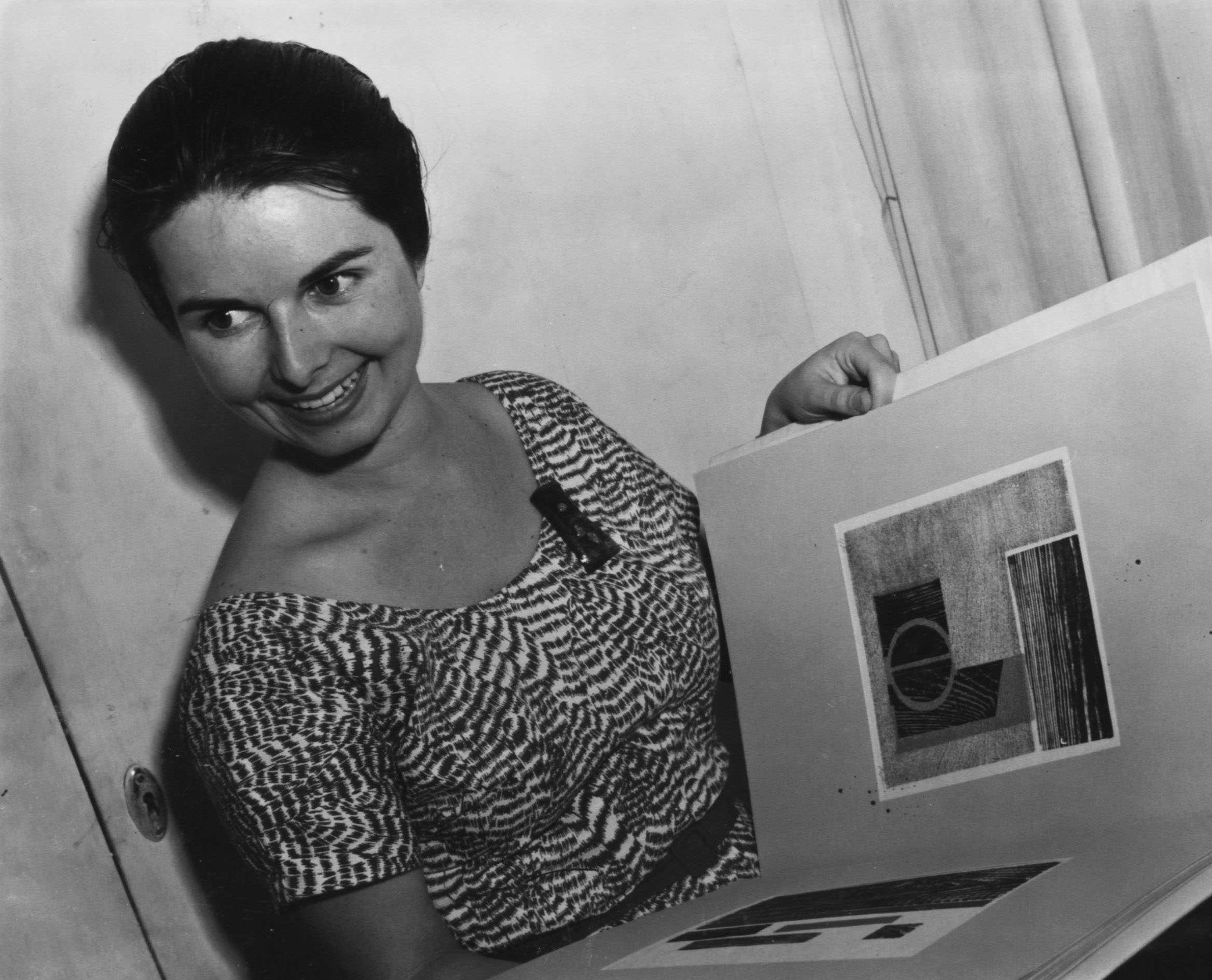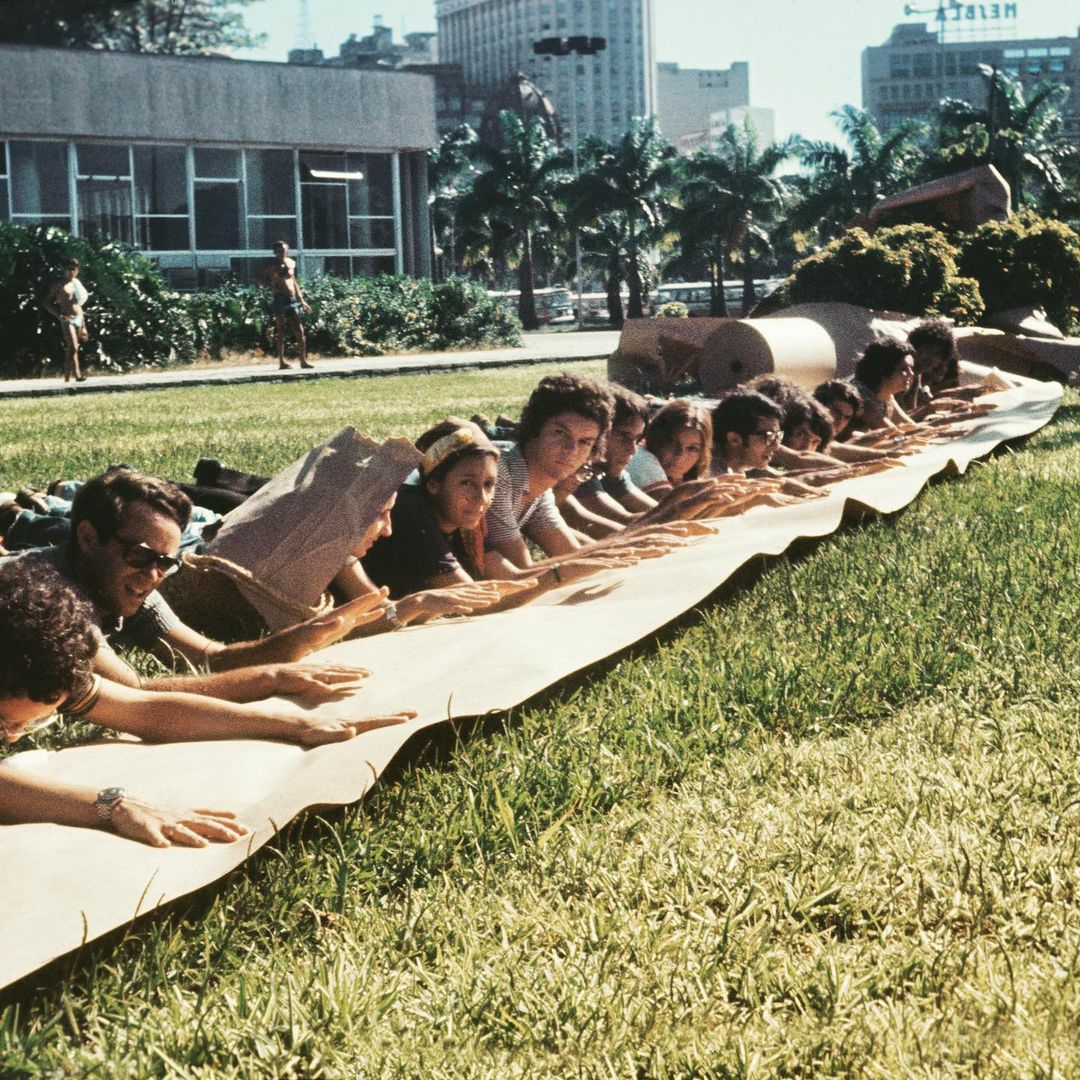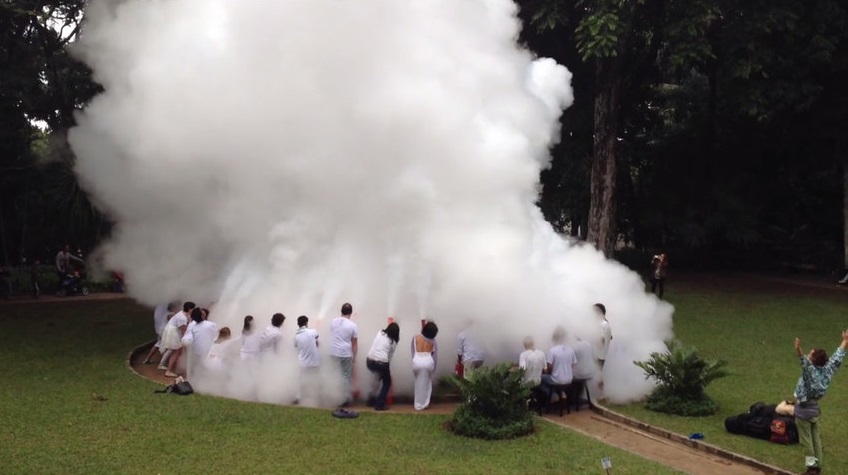Lygia Pape

(Nova Friburgo, Brazil, 1927 – Rio de Janeiro, Brazil, 2004): Multidisciplinary artist, considered among the most relevant figures of 20th-century Latin American art. Her work, initially influenced by constructivism, explored geometric abstraction through experimentation with visual concepts such as form, color, light, and movement using a wide range of media (painting, drawing, poetry, photography and graphic design, cinema, and performance). In her youth, together with other artists such as Iván Serpa, Lygia Clark, and Hélio Oiticica, she belonged to the Grupo Frente and to its subsequent neo-concrete dissidence. Within it, she developed a geometric language that provided spectators a bodily and a phenomenological experience, reaching the heights of key works such as Livro da Criação (Book of Creation) (1959-1960) and Ttéia 1, C (1976-2004). On the other hand, in her experimental movies from the late 1960s until the early 2000s, Pape documented her actions and recorded the many-sided identity of her country. These were political and social topics she approached as a teacher in institutions such as the Museu de Arte Moderna, the Santa Úrsula School of Architecture, among others, where she focused her philosophy as a facilitator in the semiotic and experiential assessment of urban manifestations, foreign to the academic dogmas.

